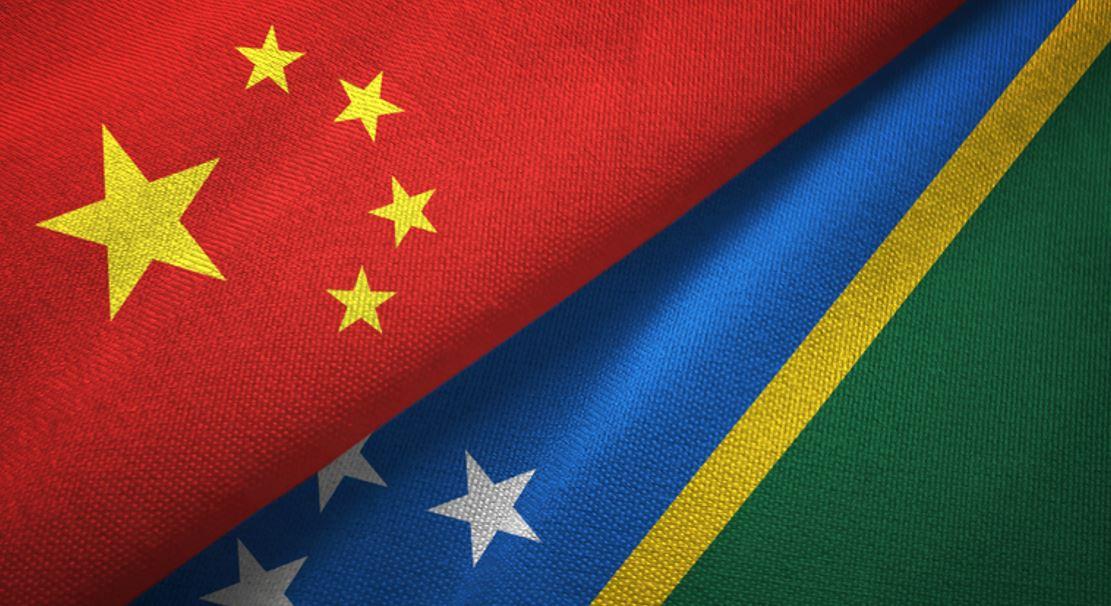
Over the past twenty years, the United States has increasingly tried to claim that Washington does not believe in spheres of influence and that only supposedly imperialist states like Russia are interested in spheres of influence. This has always been nonsense, of course, especially since Washington’s Monroe Doctrine explicitly claims a sphere of influence for the United States. But the US doesn’t even stop there, and further claims a global sphere of influence through its client nations such as Egypt, South Korea, Japan, and other nations that are dominated by Washington through military and trade relationships.
Other larger states and great powers understand the game, however, and China has long sought to increase its own sphere of influence. Its ultimate goal is to expand its sphere of influence throughout the “first island chain” of East Asia, which includes Japan, Taiwan, and the Philippines. This region, of course, is already part of Washington’s sphere of influence. The eventual hope in Beijing, it is assumed, is to push the sphere of influence out to the “second island chain,” which includes Guam.
[Read More: “Yes, the US Has Its Own ‘Sphere of Influence.’ And It’s Huge,” by Ryan McMaken.]
In moving toward these goals, Beijing may be using the US playbook, which involves offering “aid” of various sorts to other states in exchange for an expanded military relationship. We may be seeing this at work right now in Beijing’s new agreement with the Solomon Islands, an island chain in the southwestern Pacific. The Associated Press provides some details:
The Solomon Islands prime minister confirmed Wednesday that his government has signed a new security agreement with China, but told lawmakers it would not “undermine the peace and harmony of our region” as has been feared by the opposition and countries including the United States and Australia.
The security pact allows China to send police and military personnel to the Solomon Islands “to assist in maintaining social order,” while also opening the door for Chinese warships to stop in port there for “logistical replenishment”—giving rise to worries of a possible Chinese naval base on the doorstep of Australia and New Zealand.
But in his address to parliament, Manasseh Sogavare defended the security agreement as being directed entirely to “our internal security situation.” He said it it complemented a 2017 security arrangement with Australia, under which Australian police peacekeepers have been in the capital, Honiara, since riots in November.
The Solomon Islands are only about a thousand miles northeast of Australia, which, of course, is little more than an extension of the United States in geopolitical terms. Canberra has already stated it is “disappointed” with the deal. So, President Sogavare has good reason—as he implies in his comments—to believe that his government’s agreement with Beijing could provoke the US and Australia to apply pressure to Honiara to abrogate the deal.
The current deal does not immediately create a full-fledged Chinese military base in the Solomon Islands, but it certainly lays the groundwork for such a thing in the future. We will find out in the coming years—as Beijing pursues more deals like these—just how far Washington believes its sphere of influence extends through the western Pacific. This, of course, has long been supported by numerous US bases in both the first and second island chains, with bases in Japan, South Korea, and the Philippines.
No country has overseas military bases that come even close in number to those of the United States, but China presently has bases in Djibouti, Myanmar, and Tajikistan. Moscow has long pursued this strategy as well, although all of Moscow’s foreign bases are in former Soviet territory—and thus are very close to Russia itself—with the exception of a naval base in Syria.
In any case, we should expect Washington to respond with hostility to other states doing exactly what the US does—building chains of naval bases and air strips throughout the world in the name of extending its sphere of influence. These responses may even include violating the sovereignty of “uncooperative” states like the Solomon Islands, which Washington may regard as having become too open to relations with Washington’s rivals.
It should not be forgotten, however, that the western Pacific is China’s front yard, while that part of the world is many, many thousands of miles away from the US mainland. In other words, China is pursuing a sphere of influence that is at least in the same region of the world as China itself. The US, on the other hand, continues to commit itself to a sphere of influence that has little to nothing to do with the defense of the US itself. It’s very expensive, of course, but the US regime continues to benefit from a mountain of printed money that is only now beginning to trigger runaway inflation.





